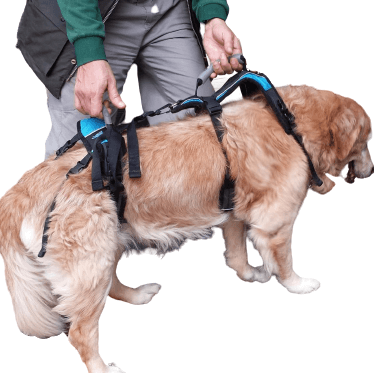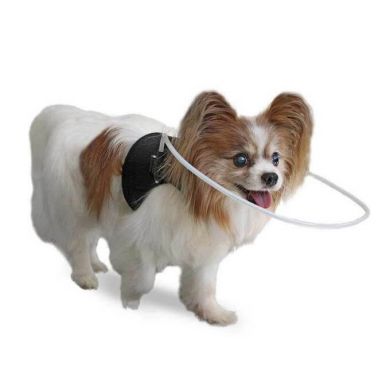
Brain Power: Natural ways to help your pet with brain aging
What is brain aging and how can you tell if your pet is affected?
Like us, our four-legged friends are now living to a ripe old age due to the advances in veterinary care! It is often easy to see the physical symptoms of the aging process, like a grey muzzle, or getting stiff when walking. However, recognising the signs that your pet’s brain is aging can be much more of a challenge!
Brain aging (also called cognitive dysfunction) involves neuro-behavioural changes that can occur in senior pets due a decline in function of the brain’s neurones (nerve cells). It is a very similar condition to Alzheimer’s disease or dementia which we see in humans. As your pet ages, protein plaques can stick to structures in the brain. This causes an interruption to the nerve messages to and from the brain.
As pet owners, we may start to notice changes in our cat’s or dog’s personality such as them getting grumpy! Or keeping us awake all night!
There are two easy ways we can help to support brain aging: Supplement support and environment enrichment. But first, let’s explore the wide range of signs that might suggest your furry friend is starting to suffer brain aging. These can include:
1. Disorientation at home
- Staring into space
- Getting lost behind the sofa or stuck in a corner
- Standing next to the door, or going to the wrong door
- Inappropriate vocalization – barking for no known reason
- Fear of familiar objects
2. Changes in social interactions (whether with people or animals)
- Does not greet you when you get home
- Hiding at home or starts to follow you everywhere
- Becomes scared of people they already know

3. Decline in house training
- Loss of toilet training such as eliminating inside after being outdoors or not signaling the need to toilet.
- Inappropriate house soiling in random spots
4. Alterations to the sleep/wake cycle
- Vocalizing, pacing or restlessness at night
- Keeping you awake
- Sleeping less at night and more during the day

It is important to note that all these behaviours can also be caused by medical illness, which is why we also recommend discussing with us or your family vet to rule out any other conditions such as arthritis or incontinence. Brain aging can also occur alongside the deterioration of other senses such as hearing and vision.
There are two main areas which work together to help support and improve the brain’s ability to cope as it naturally ages. And the good news? They are easy adaptations to make to your pet’s routine!
How can we slow down the progress of brain aging and support our senior pets?
Environmental enrichment and sensory stimulation
‘Use it or lose it’: To keep your pet’s neurons functioning well, we need to be actively using them. It can be as simple as introducing a new toy or treat or stimulating different senses such as smell or touch.
- Basic commands – instead of sit and stay, try something new like training your clever companion to walk backwards or turn in a circle or take a bow.
- Obstacle courses – If your pet’s vision is still very good, place some safe everyday items such as umbrellas to step over or pillows to walk around and guide your pet through the course – and don’t forget a treat at the end!
- Playing hide and seek games - either by hiding treats or toys or you can even try hiding yourself and seeing if your pet can find you!
- Massage - When your furry friend is relaxed you can gently massage along both sides of its back and down its legs and they will love you for it! Brushing is also a good way to stimulate the sensory nerves and as a bonus you will have a well-groomed critter at the end!

mmmmmm, massage and brushing feels sooooo goooooood.
Nutritional support with supplements
Every day, we are learning more ways that nutrition can help to keep our adored pets healthy. Antioxidants and supplements can help to repair damage to the cells in the body and are very useful in helping to protect the brain’s neurons from the effects of brain aging.
Medications
There are prescription medications available which may also help with brain aging. It is good to have a conversation with your family vet and see if these may be beneficial for your animal.
Aktivait® (VetPlus, UK) is a nutritional supplement aimed to optimise brain function and activity levels of both senior cats and dogs. Research has proven that this complex formulation protects the brain from free radical damage and enhances the electrical messages between brains cells. By doing so, it then helps to reduce age-related loss of mental function and activity levels in your pet.
The formula includes antioxidants (vitamins C & E, selenium, co-enzyme Q10, alpha-lipoic acid and N-acetyl cysteine) to fight the oxidative damage, and compounds that support brain cells’ function and its metabolism (carnitine, phosphatidylserine and the omega 3 fatty acids DHA and EPA). Aktivait comes in a convenient capsule so it can be easily hidden in a yummy treat or opened and the contents sprinkled over dinner!

The team at Paws in Motion would love to visit you and your senior pet in the comfort of your home. We can create a program incorporating physical exercises to improve neuroplasticity and brain function, and teach you massage techniques to relax and soothe your senior companion. We can also recommend suitable diets and supplements such as Aktivait. Together we can make your pet more comfortable and improve their quality of life!!
Related Products
This site is protected by reCAPTCHA and the Google Privacy Policy and Terms of Service apply.








